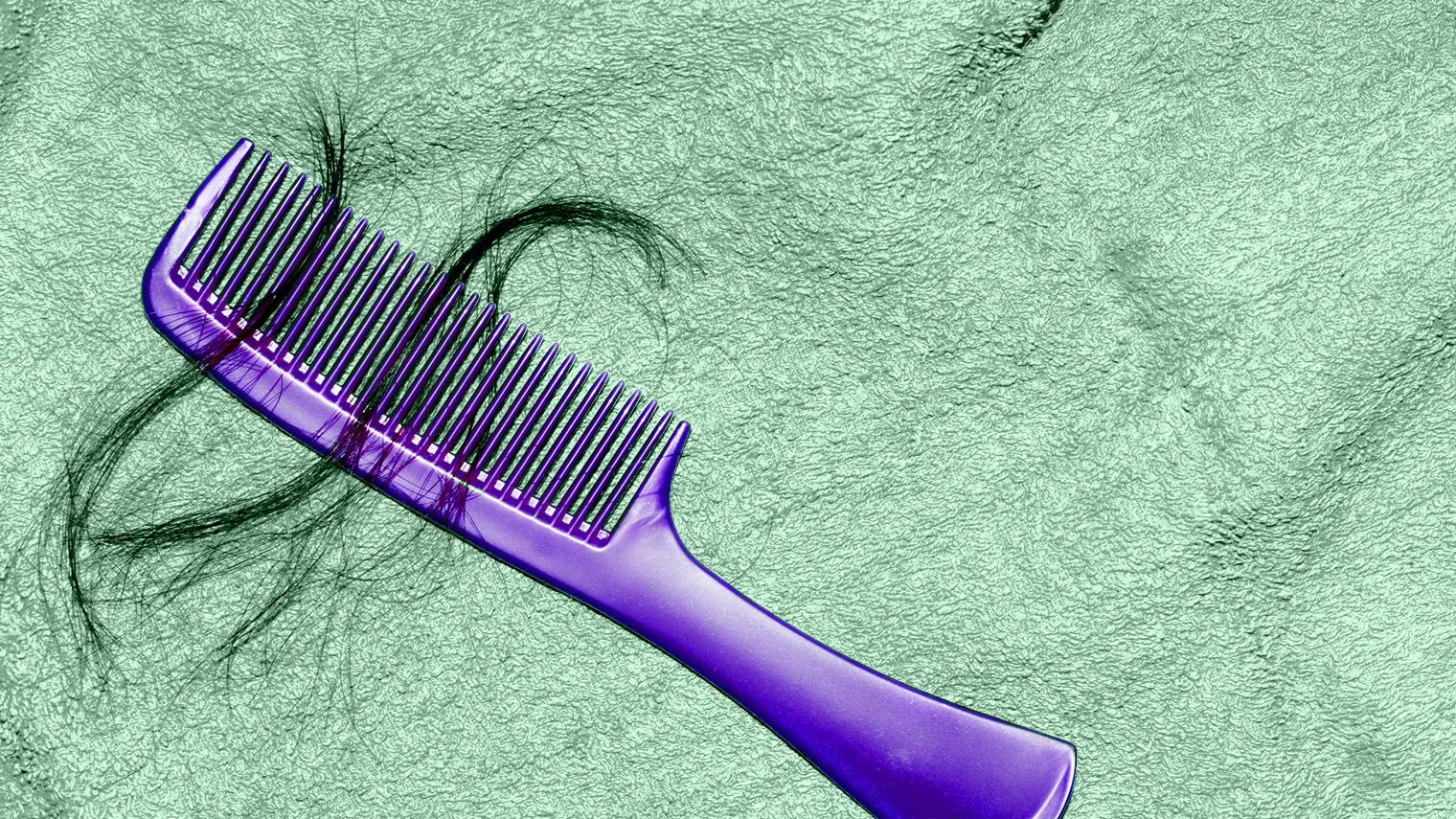How to Manage Hair Loss as a Side Effect of IBD
Updated November 25, 2024

Photography by Juan Moyano/Stocksy United
Hair loss could be a sign to address aspects of your IBD in new ways.
If you’re living with inflammatory bowel disease (IBD), including ulcerative colitis and Crohn’s disease, you know how challenging it can be to deal with the mostly invisible symptoms. Add on hair loss, which many folks with these conditions also experience, and it can feel like the last straw.
Hair loss isn’t directly caused by IBD, per se. But it’s a common problem for a number of reasons, including medication, nutrient deficiencies, and stress, shares Dr. Harish K. Gagneja, a gastroenterologist at Austin Gastroenterology in Texas.
“Just because you have IBD doesn’t mean you’ll automatically have hair loss as a result,” he says. “However, we see this frequently, so it’s good to be aware that it may happen. The most important step is to consider what may be the underlying cause, so we can address that.”


What causes hair loss with IBD?
According to the American Academy of Dermatology (AAD), it’s normal to shed between 50 and 100 hairs a day. Typically, these hairs are replaced just as quickly. But if hair regrowth is slowed or stopped, it’ll become noticeable over time as hair loss.
Immunosuppressants
Immunosuppressant drugs that are frequently used to treat these conditions are one of the most likely culprits of hair loss with IBD, says Gagneja.
IBD tends to be well controlled with drugs like infliximab (Remicade), methotrexate (Otrexup, Xatmep, Trexall, and Rasuvo), and azathioprine (Imuran), he adds. All these medications have potential hair loss as a side effect.
This could be because these drugs are designed to slow down cell multiplication. This can improve inflammation in the digestive tract, but it also affects regular hair regrowth, a process that depends on cells turning over frequently, Gagneja explains.
Immunosuppressant drugs are also commonly used in combination. For example, you may take infliximab regularly and add azathioprine for flare-ups. This can further increase your risk of hair loss.
Stress
Stress is another big issue, and the AAD notes that it’s common to experience excessive hair shedding as a result of higher stress levels.
IBD is often associated with significant stress, and it can be a vicious cycle, Gagneja says. For example, if you feel overwhelmed by your condition and are worried about your hair loss, that can make both your IBD and hair loss worse, which then increases your stress, and so on.
Nutrition
The third major component may be nutrition, Gagneja adds. People with IBD sometimes struggle with nutrient absorption, particularly vitamins and minerals like iron, riboflavin, vitamin C, and vitamin D.
Nutritional deficiencies may affect both hair structure and hair growth, and they’re often a factor for hair loss, according to research published in 2017 in the journal Dermatology Practical & Conceptual. It’s an issue that can be compounded if someone is also not getting enough calories and protein.
How to prevent and manage hair loss
Unfortunately, these three major causes of hair loss can all come into play when you have IBD. For example, you may be dealing with nutritional deficiencies and malabsorption, high stress levels, and medication side effects.
Find the trigger
Focusing on each of these areas can help prevent and manage hair loss, says Dr. Chesahna Kindred, a dermatologist at Kindred Hair and Skin Center in Maryland. Some of this may resolve on its own, but it could take up to a year, she adds.
Managing your stress and focusing on your nutrition could shorten that time frame, though.
“Sometimes, the patient and physician have to play detectives to identify the culprits,” says Kindred. “If you can find the trigger, it makes a big difference.”
Be gentle with your hair
In the meantime, treating hair gently is important, Gagneja says.
That means cutting down or eliminating hair coloring and perms, avoiding hairstyles that involve pulling on the hair — such as tying it in a tight ponytail or bun — and minimizing excessive brushing.
Gagneja also suggests using a gentle shampoo and potentially washing your hair less often. There are hair masks that promise to add nutrients to hair, but be careful not to overdo these treatments.
Talk about your treatment options
Changing your hair care and styling routines can help to some degree, but there may come a time when hair loss is more of a concern than an annoyance.
In that case, talk with your doctor about potentially changing your medication to one that doesn’t have hair loss as a side effect, suggests Gagneja.
You may also consider consulting with a dermatologist who specializes in hair loss issues, Kindred adds, since they’re likely to have dealt with IBD-related hair issues in the past.
The takeaway
In some ways, hair loss may not just be a side effect. It could be a head’s up that you need to address aspects of your condition in new ways.
That may lead to finding better stress-relief strategies, different medication, or nutrition options that help you manage your symptoms. All of this can have a ripple effect on your health and well-being.
Originally written July 16, 2020
Medically reviewed on November 25, 2024
4 Sources


Like the story? React, bookmark, or share below:
Have thoughts or suggestions about this article? Email us at article-feedback@bezzy.com.
About the author